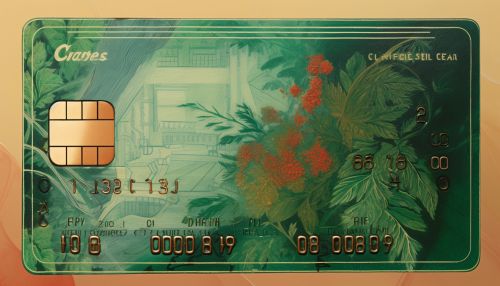Credit Cards
Introduction
A credit card is a payment card issued by a financial institution, typically a bank, to cardholders as a method of payment. It allows the cardholder to pay for goods and services based on the holder's promise to pay for them. The issuer of the card creates a revolving account and grants a line of credit to the cardholder, from which the cardholder can borrow money for payment to a merchant or as a cash advance.
History
The concept of using a card for purchases was described in 1887 by Edward Bellamy in his utopian novel Looking Backward. Bellamy used the term credit card eleven times in this novel, although this referred to a card for spending a citizen's dividend from the government, rather than borrowing.


Types of Credit Cards
There are several types of credit cards available, each with its unique set of benefits, drawbacks, and rates.
Standard Credit Cards
A standard credit card is a simple form of unsecured credit from a financial institution. The cardholder can use it to purchase goods and services up to a pre-set credit limit. The financial institution will then charge interest on any outstanding balance.
Secured Credit Cards
A secured credit card requires a security deposit to be placed on the card. The credit limit on this type of card is typically the amount of the deposit. These cards are designed for people with no credit or poor credit.
Charge Cards
Unlike standard credit cards, charge cards do not carry a balance. Instead, the cardholder must pay off the balance in full each billing cycle.
Rewards Credit Cards
Rewards credit cards offer incentives for use, typically in the form of points or cash back for certain purchases.
Credit Card Issuers
Credit cards are issued by various types of financial institutions, including banks, savings and loans, and credit unions. Some large retailers also issue their own branded credit cards.
Credit Card Transactions
A credit card transaction typically involves four parties: the merchant, the acquirer (the financial institution that enables payments to the merchant), the issuer (the cardholder's bank), and the individual cardholder.
Credit Card Interest
Credit card interest is the principal way in which credit card issuers generate revenue. A cardholder who carries a balance on their credit card owes interest on that balance.
Credit Card Benefits and Drawbacks
While credit cards offer numerous benefits, they also have potential drawbacks such as the possibility of debt and interest charges.
